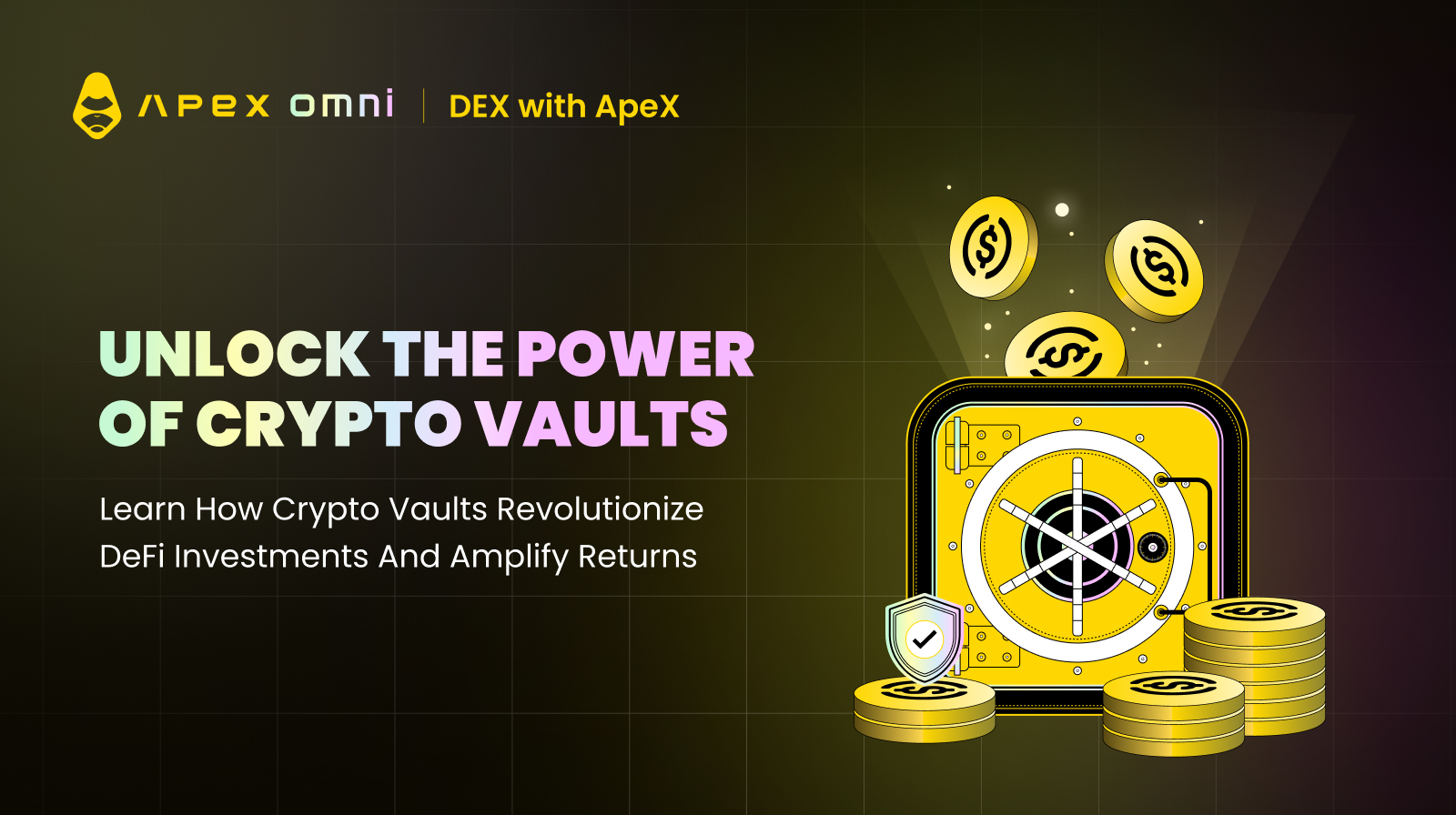In the rapidly evolving landscape of decentralized finance (DeFi), crypto vaults have emerged as a cornerstone technology, revolutionizing the way we interact with digital assets. These sophisticated smart contracts go far beyond simple storage, serving as multifaceted financial instruments that power a diverse array of operations within the DeFi ecosystem.
This article delves into the concept of crypto vaults, exploring their types, functionalities, and the advantages and risks associated with their use.
What are Crypto Vaults?
Crypto vaults are smart contracts designed to store and manage cryptocurrencies and digital assets. However, their role in the DeFi landscape extends far beyond simple storage. These vaults have evolved into automated investment platforms that execute predefined strategies to generate yields for their users.
At their core, crypto vaults allow users to deposit their assets, which are then utilized in various DeFi operations such as yield farming, arbitrage, and liquidity provision. The vaults employ smart contracts to automatically execute these strategies, constantly seeking the most profitable opportunities across different protocols and blockchains.
One of the key features of modern DeFi vaults is their ability to compound returns. As the vaults generate yields, they reinvest these earnings into new opportunities, maximizing potential returns for users. This automated process of yield optimization sets crypto vaults apart from traditional investment vehicles.
Types of Crypto Vaults
Crypto vaults can be broadly categorized into 2 main types:
1. Simple Crypto Vaults
These vaults focus primarily on securely holding and protecting digital assets. They often incorporate robust security mechanisms and multiple layers of protection. Some simple vaults may also be configured to execute basic tasks as part of a larger infrastructure, such as facilitating cross-chain transactions.
2. Complex Strategy Vaults
These vaults are designed to execute one or more investment strategies concurrently. Their primary objective is to maximize yields on user deposits by leveraging various DeFi protocols and opportunities.
Examples of complex strategy vaults include:
Yield Farming Vaults: These automatically move assets between different protocols to capture the highest yields.
Liquidity Provider (LP) and AMM Vaults: These manage liquidity provision to decentralized exchanges (DEXs), optimizing for trading fees and liquidity mining rewards.
Leveraged Yield Farming Vaults: These use borrowed funds to amplify investments in yield farming strategies, aiming for higher returns but with increased risk.
Algorithmic Trading Vaults: These employ automated trading strategies like arbitrage, liquidations, or market making.
Advantages and Risks Associated
Crypto vaults offer several key advantages for investors in the DeFi space. A major benefit is automated yield optimization; vaults continuously seek out the best yield opportunities, saving users time and effort that would otherwise be spent on manual management. They also provide diversification by pooling funds from multiple users, which grants access to a wider range of investment strategies and helps spread risk, enhancing overall investment stability. Next, vaults lower the barrier to entry for complex DeFi strategies, making these advanced opportunities accessible to a broader audience. Additionally, their automatic reinvestment of yields fosters significant growth over time through compounding effects. This capability to generate compound returns makes vaults a compelling option for long-term investors, offering the potential for amplified gains.
It is crucial to understand that crypto vaults come with their own set of risks. The effectiveness of a vault depends heavily on its underlying strategy. If this strategy underperforms or fails to adapt to changing market conditions, investors may experience losses. Additionally, vaults providing liquidity to automated market makers (AMMs) face the risk of impermanent loss, which happens when asset prices diverge significantly and can reduce the investment's value over time. Next up, lending vaults also carry liquidation risk. If the value of the collateral falls below a certain threshold, it could lead to liquidation and potential losses for the investor. Despite their significant advantages, it's essential for users to be mindful of these risks and carefully consider them before investing.
As demonstrated, crypto vaults represent an evolution in the DeFi space, offering users automated yield optimization and access to complex financial strategies. From simple storage solutions to sophisticated investment vehicles, these vaults reshape how individuals interact with digital assets and traditional financial instruments. The capabilities of these vaults, coupled with their ability to tokenize real-world assets, position them as a cornerstone of the emerging decentralized financial landscape.
If you have any suggestions for what you'd like us to cover next in our Learn series, don't hesitate to reach out to us via ApeX Discord channel or via the following feedback form.
Stay tuned for more details on vaults, coming soon to ApeX.
DEX with ApeX, Your Go-To DEX!

